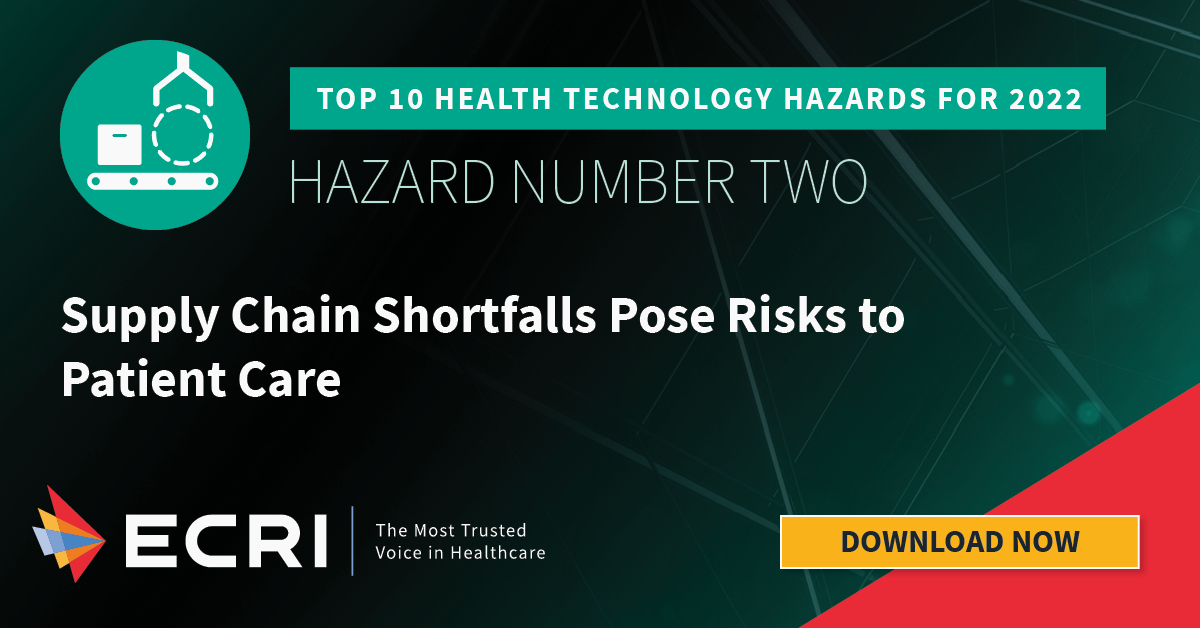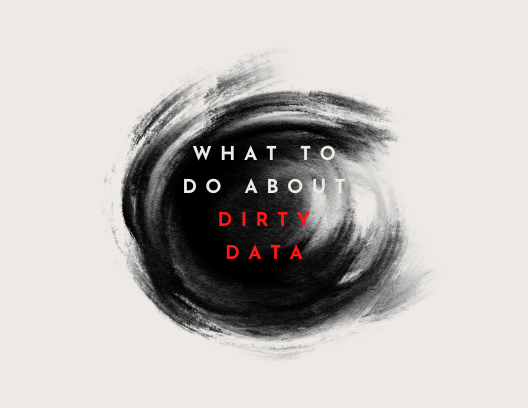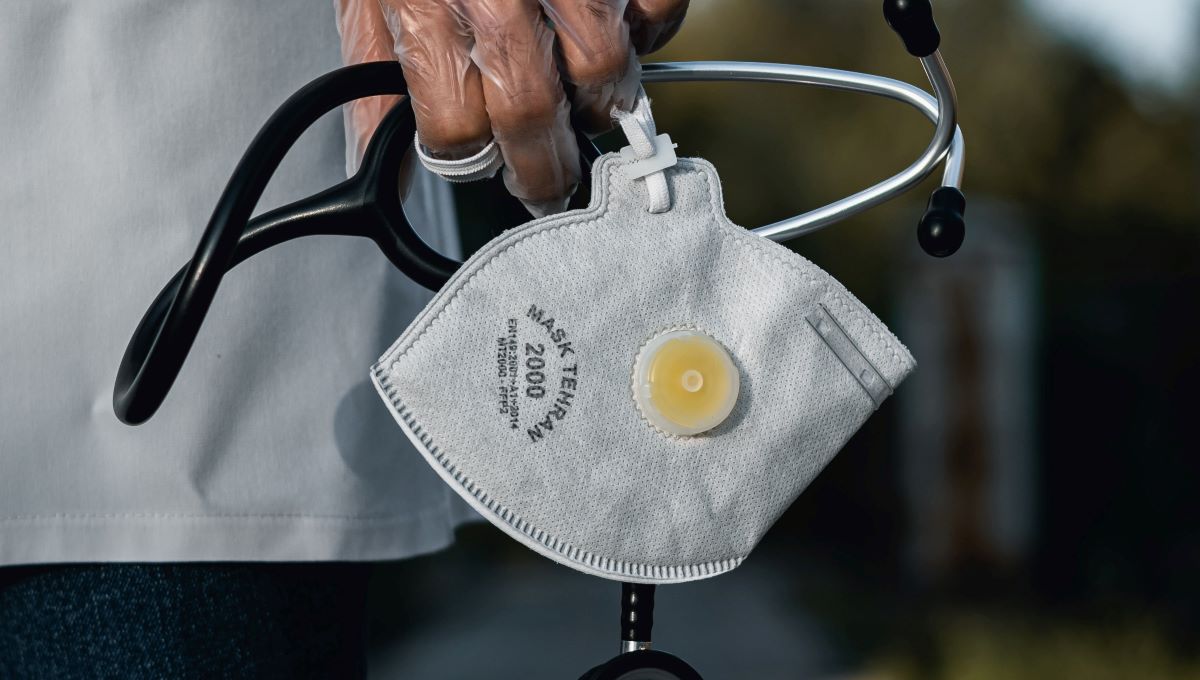ECRI’s Top 10 Health Technology Hazards for 2022 ranks supply chain shortages among the top three risks facing healthcare organizations. The ranking is for good reason: patient lives may be at risk if essential medical supplies and equipment are unavailable. This risk increases as global supply chain disruption continues to impact healthcare organizations. According to an October 2021 report on healthcare performance, at least 80 percent of hospitals reported supply shortages.
Shortages can stem from the impact of the pandemic, which has sometimes brought manufacturing to a halt. Others are the result of vulnerabilities in traditional supply chain planning, such as keeping limited amounts of products in storage and relying on fast delivery. Weather events and other force majeure incidents also play a role. Together, these create a cascade effect that causes many healthcare organizations to struggle to locate, purchase, and obtain supplies:
- Raw material shortages increase prices and reduce output. For example, shortages of resin impact the availability of plastic and magnesium shortages affect the availability of aluminum – causing issues for manufacturers.
- Suppliers who rely heavily on offshore manufacturers that have been disrupted by the pandemic or global weather events need to find supplies elsewhere.
- Supply chain practices and other pressures reduced organizations’ stockpiles of critical supplies. “Just-in-time’ supply chain models, designed to reduce the need for physical inventory, are upended when products can’t be sourced or delivered on time.
- Logistical challenges, such as ongoing trucking, shipping, and delivery issues brought on by the pandemic, delay delivery of critical supplies.






